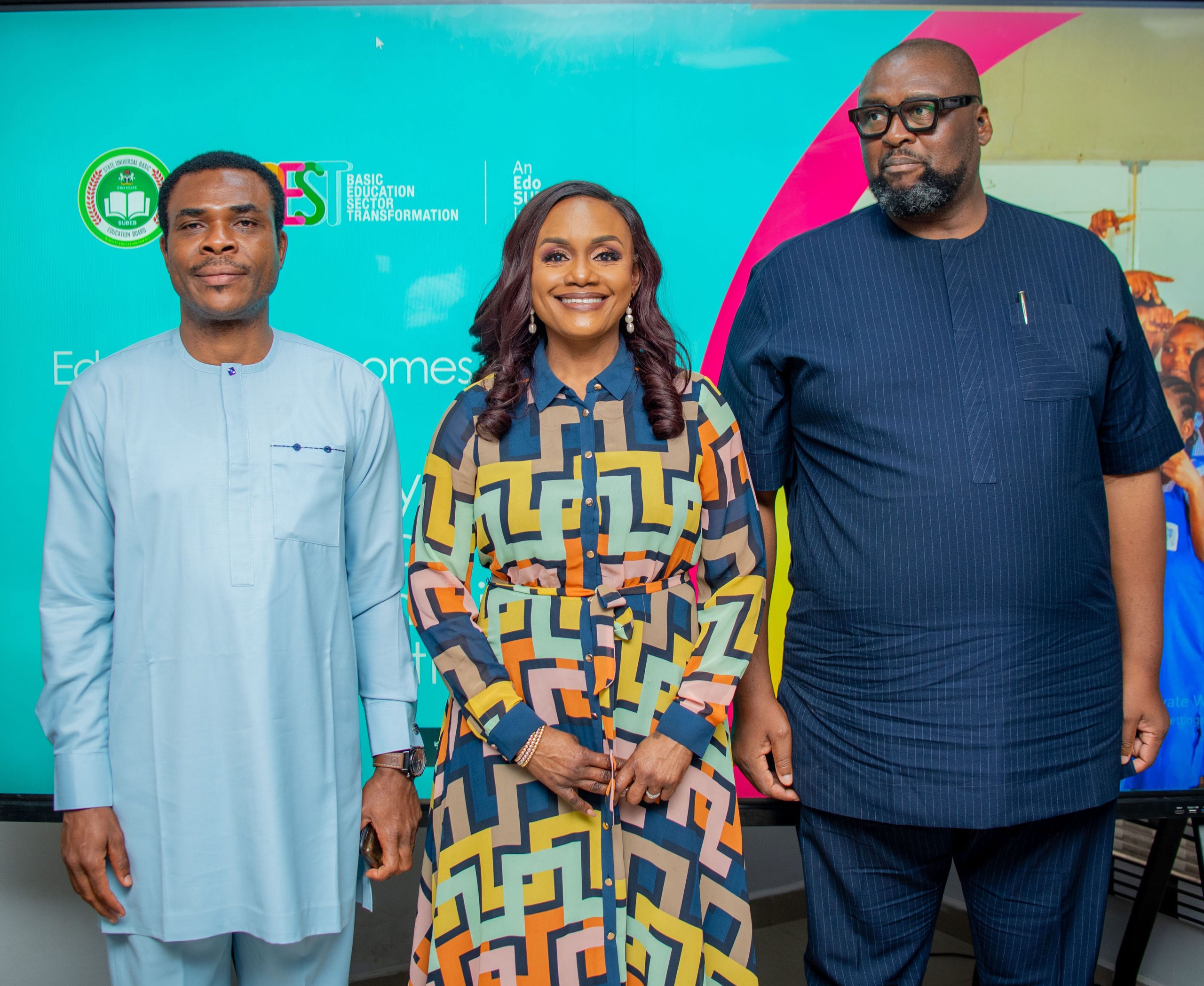From the inception of his administration, Godwin Obaseki has prioritized education as one of his key reform areas and has committed substantial resources in this regard. This commitment birthed the EdoBEST programme which has recorded modest but impactful outcomes in areas which can be highlighted under the five pillars of the EdoBEST 2.0 programme – Governance, Innovative Teaching, Learning for Skills, School environment/Infrastructure, and Values.
To clearly articulate and communicate these impactful outcomes, the Executive Chairman, EdoSUBEB engaged the media to share the EdoBEST impact story. In her presentation, Mrs Salami exuded passion in sharing the vision, strategic objective, and ultimate goal of the EdoBEST programme which is geared towards equipping Edo children with the requisite knowledge, skills and values needed for the future and positioning them to become global citizens.
Beyond the significant investments made in innovative teaching, teacher capacity development, systems strengthening, and governance, there is currently an infrastructure intervention plan that is being implemented on the basis of analysis and data-driven decisions that are anchored on the use of technology.
Between October 2021 and July 2023, under EdoBEST2.0, this administration distributed over 11,635 digital work tools comprising smartphones, teacher tablets, Samsung tablets and power banks to various stakeholders in the basic education ecosystem. More than 1.5million textbooks, homework books, over 7.5 million exam materials and not less than 1.6 million result sheets were distributed to facilitate teaching, learning and assessment.
Since its inception, over 600,000 children have benefitted from EdoBEST. Today, over 380,000 children are receiving relevant and next-generation aligned learnings made available in 1,289 basic education schools (primary and junior secondary schools) across 18 local government areas in Edo state.
With respect to improving school infrastructure, which is also a focus area of this administration, she noted that at least 48,950 metres of school fence have been constructed, another batch of fence construction measuring 14,850 metres will be completed before September 2023; approximately 38,000 furniture sets have been supplied to schools while another of 10,000 furniture sets are in finishing stages soon to be delivered to schools ahead of the new academic session.
Additionally, over 1,100 toilets have been constructed or renovated with 174 toilets nearing completion. 41 Water projects are also currently ongoing.
She further explained that while so far 7,511 classrooms have been renovated, and 321 new classrooms constructed since the start of the administration, an additional 400 classrooms will be ready to receive pupils when they resume in the next academic session.
From the presentation made by Mrs Salami, it is evident that thousands of children in hard-to-reach, riverine areas also benefit from this programme through the Progressive School Model which caters to minority and vulnerable groups.
The Executive Chairman in her presentation acknowledged the facility from World Bank, and partnerships from Bill & Melinda Gates Foundation and other international development partners in improving foundational learning and learning outcomes. To this end, she harped on the need to sustain stronger partnerships with communities, the media, and other stakeholders in protecting and sustaining government investments in basic education.


